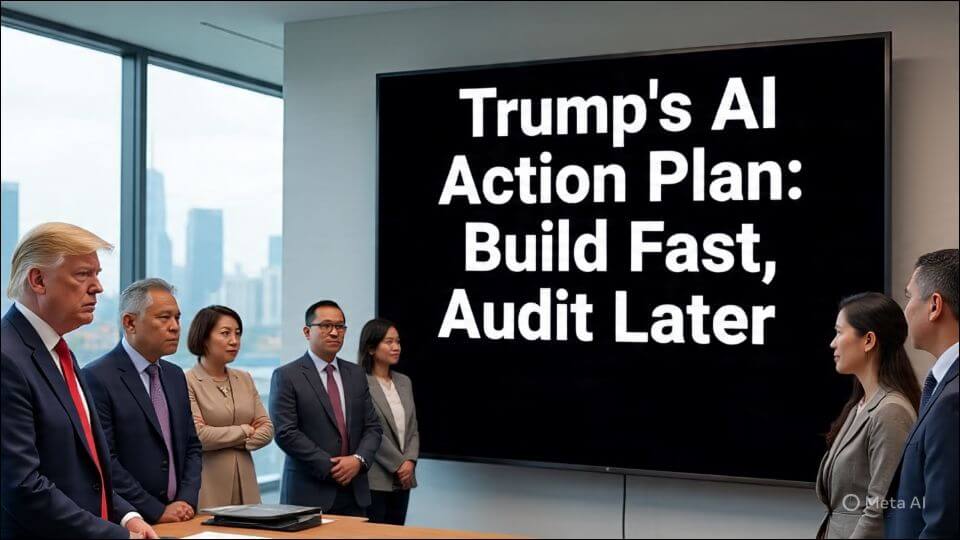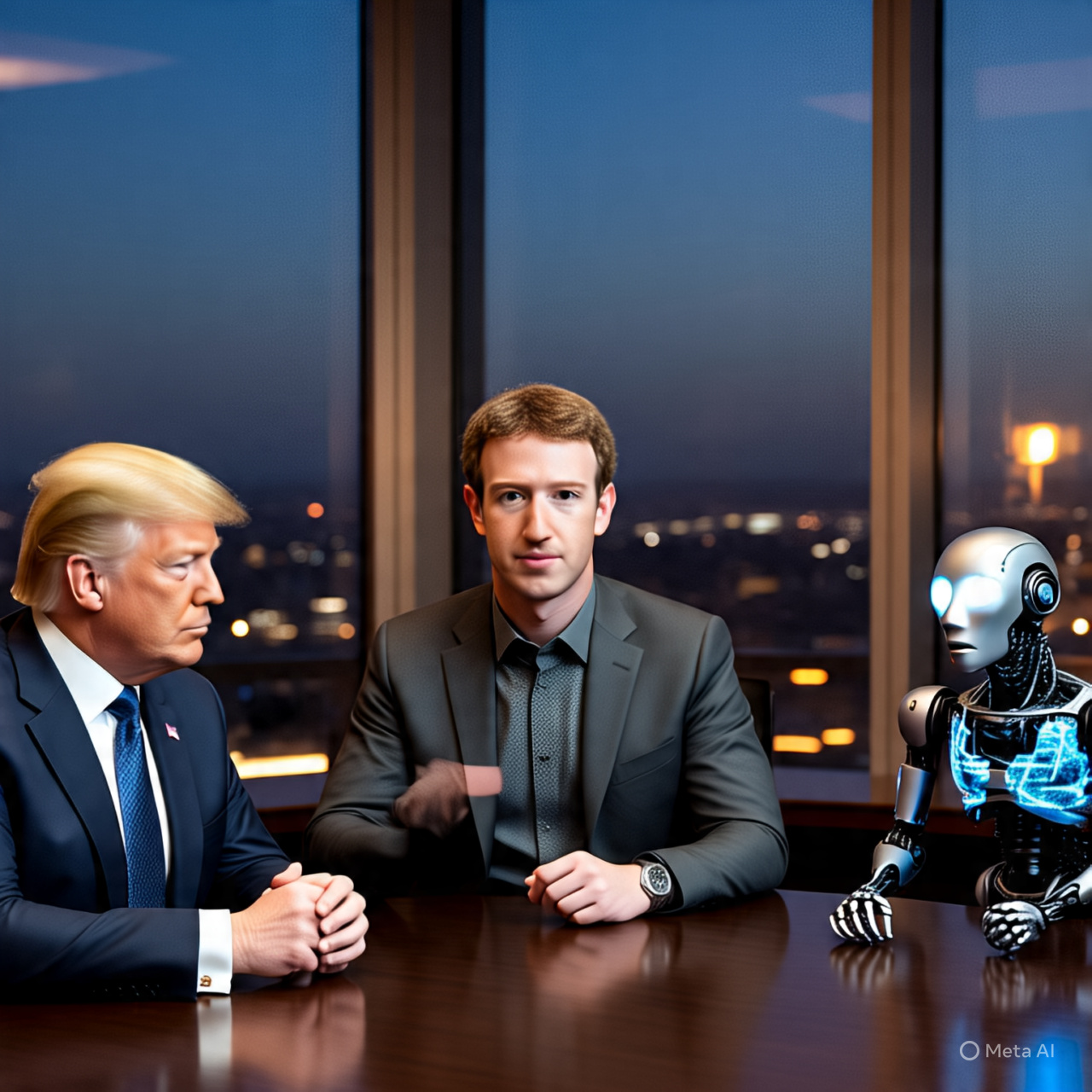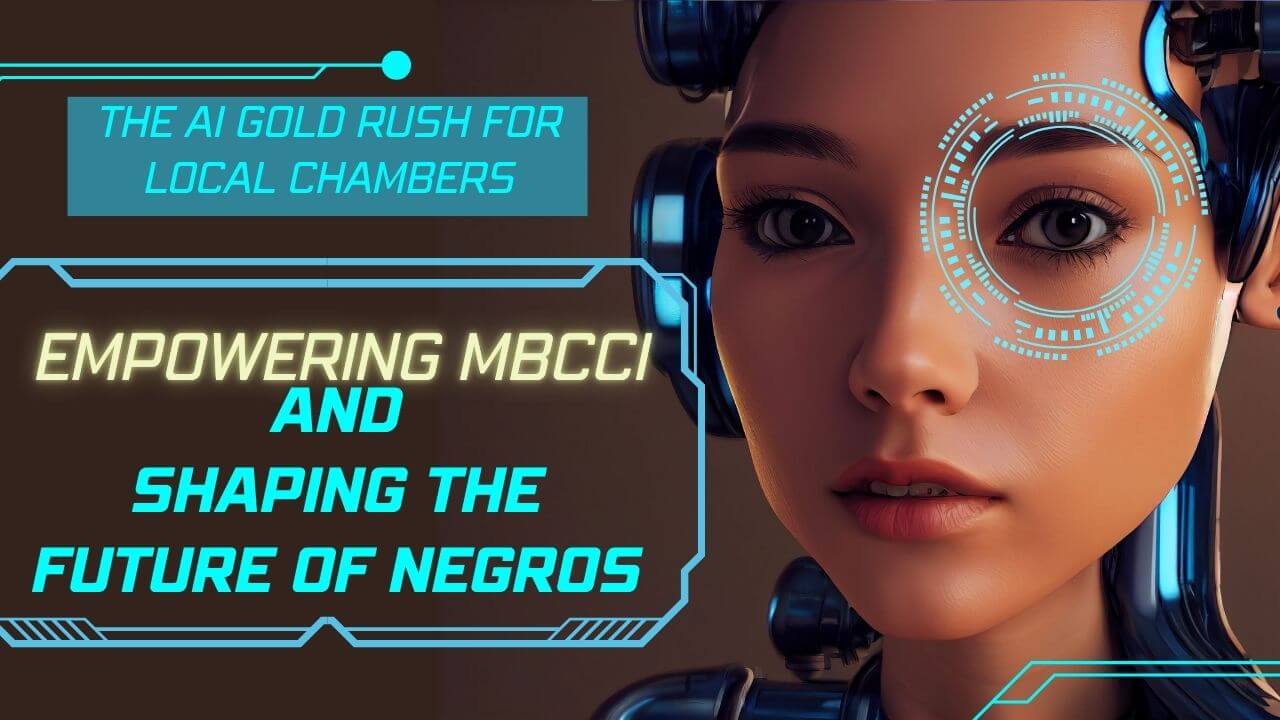Why It Matters to the Philippines—and What We Must Watch
🧭 I. The Setup: Deregulation as Strategy
U.S. President Donald Trump has unveiled a sweeping AI Action Plan that promises to “build, baby, build”—fast-tracking data centers, scrapping safety audits, and exporting American AI worldwide. The plan:
- Removes environmental and regulatory barriers to AI infrastructure
- Prioritizes “ideologically neutral” models for federal contracts
- Frames AI as a geopolitical race against China
- Encourages global adoption of U.S.-made AI tools and chips
- Downplays copyright, bias, and misinformation concerns
It’s Silicon Valley’s wishlist, signed into law. And it’s not just about America. It’s about who gets to shape the global AI standard—including in the Philippines.
🇵🇭 II. Why It Matters to the Philippines
The Philippines isn’t just a passive observer. We’re a testing ground, a market, and a labor pool for global AI systems.
Here’s what Trump’s plan could mean for us:
🧠 1. Imported AI, Exported Bias
If U.S. models are built without safety audits or cultural checks, they may carry biases that misrepresent Filipino realities—especially in health, education, and governance.
🏭 2. Data Center Pressure
Trump’s push for global AI infrastructure could accelerate foreign-led data center projects in the Philippines—raising concerns about land use, energy strain, and environmental impact.
📉 3. Job Displacement Without Safety Nets
As U.S. AI tools replace customer support and content moderation jobs, Filipino BPO workers may face layoffs—without matching investments in retraining or local AI development.
🧾 4. Copyright and Consent Risks
Trump’s plan downplays copyright protections. Filipino creators—writers, musicians, educators—may see their work scraped and used by foreign AI without consent or compensation.
🗳️ 5. Policy Copy-Paste Danger
Local lawmakers may mimic U.S. deregulation, framing it as “innovation-friendly.” But without safeguards, we risk importing the worst of AI—without the resources to fix it.
🔗 III. The Connection: Tech Feuds and Filipino Futures
In AI Politics: Trump, Zuckerberg, and the Tech Feud That Shapes Your Future, we explored how Silicon Valley’s internal battles—over bias, regulation, and control—spill into global policy.
Trump’s AI Action Plan is a direct extension of that feud. It favors speed over safety, ideology over nuance, and exports over ethics.
And for the Philippines, that means we must ask: Are we shaping AI—or just absorbing it?
🧒 Too Cryptic? Explain Like I’m 12
Imagine your neighbor builds a robot really fast. They say it’s smart, but they don’t test it. Then they send it to your house to help with chores.
But the robot doesn’t understand your language. It breaks things. It copies your homework and sells it. And when you complain, they say: “It’s your fault for not keeping up.”
That’s what happens when powerful countries build AI without thinking about others. We need robots that understand us—not just work fast.
📋 IV. What Filipinos Can Do
✅ 1. Push for Local AI Literacy
We need explainers in Taglish, Bisaya, Ilocano—not just English. Barangay-level workshops, not just tech summits.
✅ 2. Demand Consent and Compensation
Creators must be paid when their work trains AI. No more silent scraping.
✅ 3. Watch the Data Center Deals
Ask: Who owns the land? Who benefits? Who pays the electric bill?
✅ 4. Build Filipino AI, Not Just Use Foreign Ones
Support startups, researchers, and educators building tools for our realities.
✅ 5. Hold Lawmakers Accountable
Innovation is good. But deregulation without protection is dangerous.
💬 Final Thought: Why Live With AI That Knows You Exist
Trump’s AI plan may shape the global standard. But Filipinos deserve tools that reflect our language, labor, and dignity.
Because if we don’t shape the system, we become the system’s background noise.
And in the age of AI, being seen is no longer enough. We must be heard.







